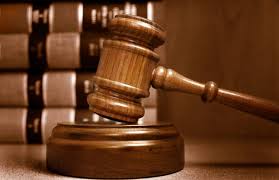Advancing in life and its daily hurdles, most people have come to acknowledge the fact that everything they own or live in particular must be insured. Insuring their cars, houses, health even their lives,without fully knowing what insurance is or how it works.
What Is Insurance?
According to Wikipedia, Insurance is an agency of protection from financial loss. It is a form of risk management. Insurance is a strategy to regulate risk. When you acquire insurance, you obtain protection against unexpected monetary failures. The insurance company reimburses you or someone you choose if something bad happens to you. If a person has no insurance and an emergency ensues,the subject may be accountable for all related costs.
It is also an agreement, represented by a policy, in which a policyholder attains financial protection or repayment against losses from an insurance company. The company pools prospects’ risks to make compensations more affordable for the insured.
In conclusion, Insurance is an agreement that hauls the risk of monetary loss from a someone or company to an insurance company. They obtain minor percentages of money from clients and reservoir that money jointly to pay for losses.
Sequel to this, Insurance policies are used to hedge against the risk of financial losses, both enormous and little, that may occur from deterioration to the insured or their possession, or from disservice for defect or havoc inflicted to a third party.
How does Insurance works:
When a client purchases a policy, he makes regular payments, known as premiums, to the insurer. If he brings in a claim, an insurer will pay out for the loss that is covered under the policy.
If he doesn’t make a claim, he won’t get his money back; instead it is fused with the premiums of other policyholders who have taken out insurance with the exact insurance company. Only If he makes a claim the money comes from the pool of policyholders’ premiums.
For a client to decide on the type of insurance he or she needs, he or she should think about:
• Why Insurance is necessary?
• What are the things that need to be insured?
• How much can the client afford ?
• How long does the client need Insurance for?
• If the client wants insurance for himself or for his loved ones?
The most familiar sorts of personal insurance policies are auto, health, homeowners, and life.
Enterprises require different types of insurance policies that insure against distinctive types of risks faced by a specific company. For Instance, an eatery needs a policy that encompasses destruction or damage that happens as an outcome of cooking with a deep fryer. A car vendor is not prone to this kind of risk but does need coverage for damage that could emerge as a result of test drives.
Insurance Policy Components
When deciding on a policy, it is significant to know how insurance functions.
A better understanding of these concepts goes a long way in helping you choose the policy that best suits your needs. For instance, a complete package of life insurance may or may not be the proper type of life insurance for you. There are three elements of any type of insurance are crucial: premium, policy limit, and deductible.
Premium
A policy’s premium is its price, generally implied as a monthly cost. The premium is defined by the insurer based on your or your enterprise’s risk profile, which may include creditworthiness.
For example, if a client possesses several costly autos and have a record of careless driving, he’s likely to pay more for an auto policy than an individual with a Mercedes-Benz and an excellent driving record. However, numerous insurers may indict different premiums for related policies. In other words, finding the price that is right for a client requires some discoveries.
Policy Limit
The policy limit is the principal amount that an insurer will spend under a policy for a concealed loss. Maximums may be selected per period (e.g., annual or policy term), per damage or laceration, or over the life of the policy, also known as the lifetime maximum.
Generally, the higher the limits carry, the higher the premiums. For a total life insurance policy, the maximum amount that the insurer will spend is referred to as the face value, which is the fraction paid to a beneficiary upon the demise of the insured.
Deductible
The deductible is a certain amount that the policyholder must reimburse out of pocket before the insurer pays a claim.
Deductibles serve as deterrents to vast volumes of small and trivials claim.
Deductibles can apply per policy or per claim, pivoting on the insurer and the kind of policy. Policies with very outstanding deductibles are normally less expensive because the high out-of-pocket expense mainly results in fewer minor claims.
Types of Insurance
There are many different types of insurance.
• Health Insurance
With high esteem to health insurance, Individuals who have chronic health cases or in essential need of regular medical attention should look for policies with lower deductibles. Though the annual premium is higher than a comparable policy with a higher deductible, less expensive access to medical care throughout the year may be worth the tradeoff. In subsequent to this,emergency treatment,drugs and other medical attention are covered. This is where Osun Health Insurance Scheme, OHIS, come handy.
• Home Insurance
Homeowners insurance (also known as home insurance) insures your home and properties against damage or theft or hazards relating to mortgage. Essentially all mortgage corporations expect borrowers to have insurance coverage for the full or fair value of a property (usually the property price) and won’t make a loan or fund a residential real estate trade without evidence of it.
• Auto Insurance
When a car is purchased or hired, it’s substantial to protect that investment. Getting car insurance can offer consolation in case the owner is involved in a mishap or the vehicle is looted, bashed, or ruined by a natural disaster. Instead of giving money out of pocket for car accidents, people pay annual premiums to an auto insurance company; the company then pays all or most of the costs associated with an auto accident or other vehicle damage.
• Life Insurance
Life insurance is an agreement between an insurer and a policy owner. A life insurance policy safeguards that the insurer disburses a sum of money to named beneficiaries when the insured dies in exchange for the premiums paid by the policyholder during their lifetime.
• Travel Insurance
Travel insurance is a type of insurance that covers the expenses and losses associated with traveling. It is a beneficial safety for those traveling locally or abroad.
Importance of Insurance
Pivoting on the type of life insurance policy and how it is adopted, permanent life insurance can be deemed a financial asset because of its ability to assemble cash value or be converted into cash. Simply put, most permanent life insurance policies have the capacity to build cash value over time.
Insurance aids to protect the insured person or their family against monetary failure.
Insurance advantages to individuals, institutions and nation are obvious while others are not.
The most crucial advantage of insurance is the payment of losses. An insurance policy is a deal used to indemnify individuals and companies for covered losses.
Insurance is utilizing cash flow uncertainty. Insurance gives payment for covered losses when they occur. Therefore, the uncertainty of paying for losses out-of-pocket is reduced significantly.
Insurance is acknowledging with legal requirements. Insurance fulfills statutory and contractual regulations as well as renders evidence of financial resources.
Another very vital objective of insurance is stimulating risk control activity. Insurance policies capitalize incentives to implement a loss control program because of policy requirements and premium savings incentives.
Insurance is the productive use of an insured’s resources. Insurance makes it unnecessary to set aside a huge payment of money to pay for the financial outcomes of the risk exposures that can be insured. This allows money to be used more efficiently.
Another unusual, remarkable benefit of insurance is, it aids for the insured’s credit. Insurance facilitates loans to people and companies by safeguarding that the lender will be compensated if the collateral for the loan is demolished or scarred by an insured event. This reduces the lender’s uncertainty of default by the party borrowing funds.
It also gives a source of investment funds. Insurance companies collect premiums up front, invest those premiums in a variation of investment vehicles, and pay claims if they occurs.
In overview, the benefit of insurance is lessening social burden. It helps reduce the burden of uncompensated emergency victims and the uncertainty of society.
The Socio-Economic significance of Insurance is, it facilitates trade and business, financing businesses and economic expansion; it also mobilises domestic savings; and, it enables a more profitable allocation of capital, boosting the development of financial services.
Insurance turns amassed capital into productive investments. Insurance can also encourage alleviation of losses, financial strength and promotes trade and commerce .
Insurance offers people, establishments and the economy by empowering a connotation of protection and stability of sense, insurance helps grease the mechanism of the economy.
Understanding these advantages are necessary when evaluating the requirement for insurance and aids insurers explain the purchase of insurance.
In Osogbo,the State capital of Osun,there are seven best insurance companies that offer best services of insurance to people ,who are locally in the state and outside the environs of the state, they are:
Nigeria Agricultural Insurance Corporation, Iwo/Ibadan Road, Osogbo
Industrial & General Insurance, Moye House, Osogbo, Osun
Mutual Benefits Assurance, Jaiz Bank Building, Opposite Osun Mall, Osogbo
Mansard Insurance,67, Gbongan Road, Osogbo, Osun
Law Union / Rock Insurance PlC,6,Isiaka Adeleke freeway, Osogbo
Subtle Insurance Brokers-Osogbo,17 Fagbewa street, Osogbo
Wiseway Insurance Brokers, 11 wiseway street, Osogbo







